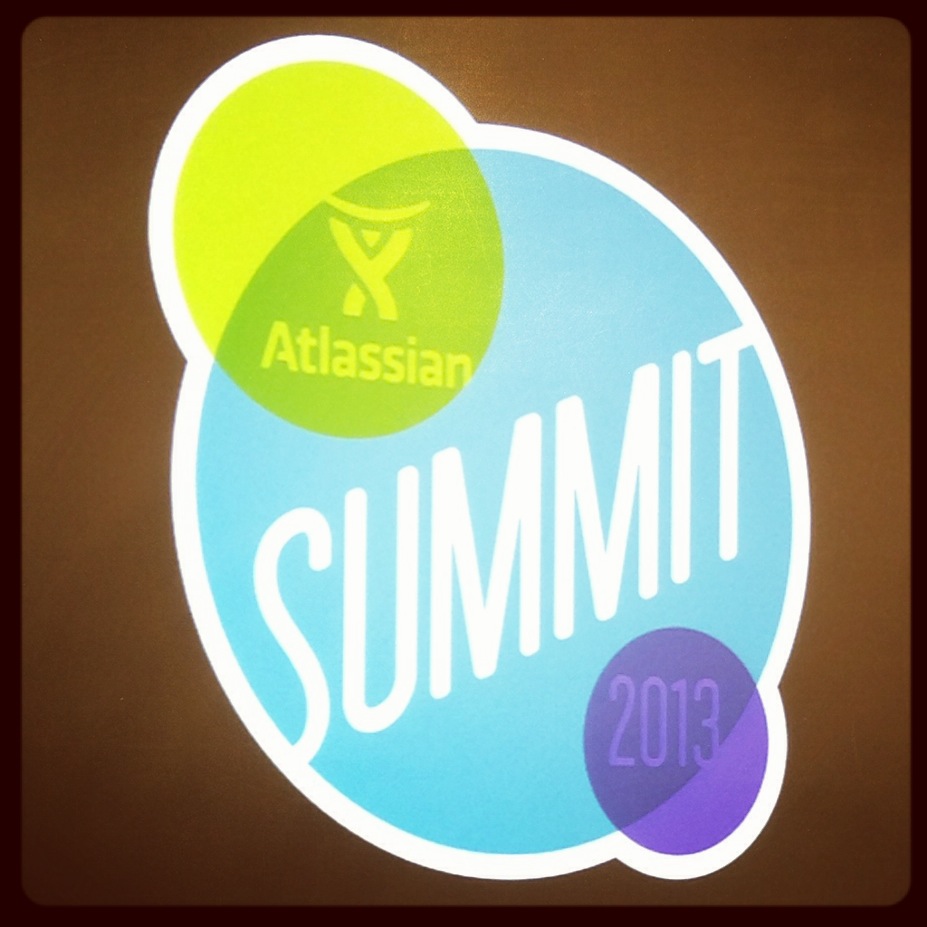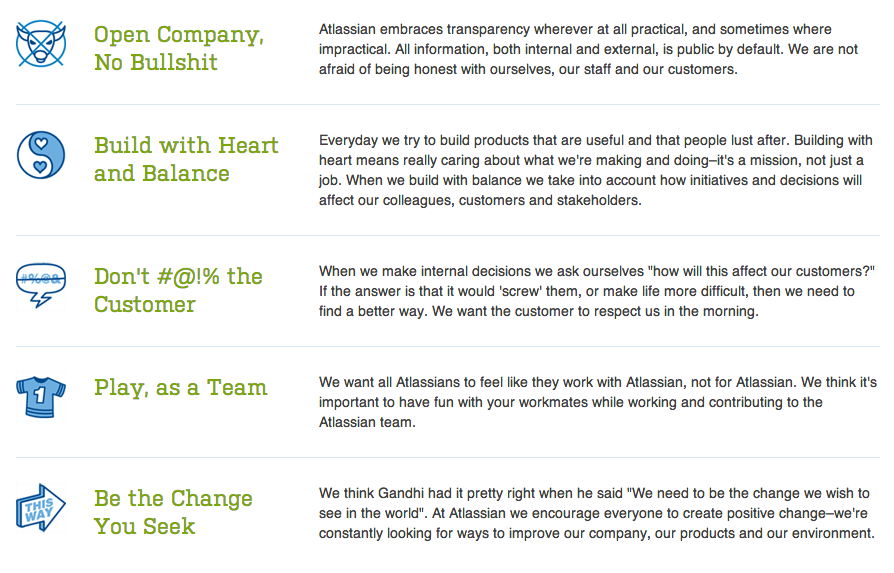Sharing Our Passion for Technology
& Continuous Learning
Pizza & Beer:Learning with Atlassian

As a new employee here at Source Allies and a new user to our suite of Atlassian products, I was fortunate, and a little intimidated, to attend Atlassian's 2013 Summit. Despite my initial trepidation, I left feeling inspired by what I learned.
Inside the Team
Summit 13 was all about the team. From the ideation of a project to its successful completion, the integration across all of Atlassian's tools is focused on making it easier for teams to concentrate on the task at hand. Atlassian's co-founder, Scott Farquhar, set the tone of the keynote with this:"Software development isn't just the developers and the testers that are involved in making high quality code.It's not just the product managers, the usability experts and the designers that are so crucial to making the lust-worthy software that's in demand these days.No, software development starts and ends with the customer.It starts with customer feedback and ends with shipping software into your customers' hands.It involves everyone in between.It involves the sales & marketing teams to get customer feedback at the start of the process.It goes to your product managers, your business analysts, to the people who code & test, your release engineers, your dev ops people, your support teams to get it in the hands of customers.And finally to your marketing & sales teams that really kind of find more customers to give it to.All of these people are involved in software development.In fact, software development is a whole company effort."
As a project manager/business analyst, I was worried that attending a software conference would leave me in the dark. Instead, Summit's theme and the Atlassian products themselves immediately made me feel like an integral part of the software development process. Add to that the fact that every session was recorded and will soon be posted to summit.atlassian.com, and suddenly I was confident that I could bring back something of value for everyone in my network; from my partners, to my company's owner, to our president, and all our software engineers & dev ops team.
Products & Features
A myriad of new products and features were announced at Summit. Here are the biggies, in my humble opinion:- Seamless integration across contexts. Creating a requirements log in Confluence? Want to create a JIRA story to be worked by your development team? Easy. Just highlight the text that you want to become the title of the story, and BOOM. A nice little window pops up asking you if you'd like to create a JIRA story without ever having to leave Confluence.
What's better? Say you've got a table with a list of requirements. Highlight just the first one and Confluence will ask if you'd like ALL your requirements in the table to become JIRA stories. A few clicks and you're back to working with your product sponsors to carve out the next piece of work your team will tackle (or heading out for the day a little early ... who needs to know).
Want to see integration across the entire Atlassian suite? Check out this video.
- JIRA Service Desk. In a word ... Whoa. I've gone through some incarnation of prioritization tool creation with lots of partners in the Des Moines area. Long story short, it always ends up with tons of time spent Googling how to get Excel's conditional formatting to work the way you want it to, or messing with macros so your spreadsheet will automatically sort when you change certain variables. With JIRA Service Desk, those hassles are gone. Instead, your team is talking about SLA's for your different customers ... you know ... the stuff you *should* be talking about. See JIRA Service Desk's automatic, simple, and intuitive prioritization for your team right here.
- Confluence Questions. Tribal knowledge. Every company has that one person who knows EVERYTHING about EVERYTHING. And when they eventually leave the company for whatever reason (retirement, winning the lottery, hit by a beer truck, etc.), everyone else is left bereft of the information the "tribal leader" had accumulated over their tenure. Confluence Questions gives that expert a means to record all that they've learned in a way that's immediately useful (bye-bye training manuals). It also provides a forum so that folks they may not even know can find the answers they need. Modeled after Atlassian Answers, the crowdsourcing aspect of Confluence Questions also allows entities to identify new information leaders. For a much better tour, see Atlassian's announcement blog post.
Culture
There was a lot of excitement around the new products and features announced at Summit. But at the end of the day tools are useless without a great team and a culture that allows them to function at their best. Many of the sessions focused on culture; how it's created, maintained and how it evolves. Here are a few interesting take-aways I had:- Atlassian's company values. I'll let them speak for themselves:
- Hubspot's culture. Jim O'Neil, Hubspot's CIO, shared that if a new person joins a team and causes disruption, Hubspot's first course of action is to work with that individual through open & honest conversation followed by coaching. But if the disruption continues after that coaching, no matter how talented the individual, that person is a star in someone else's universe -- not Hubspot's. Hubspot even goes so far as to actively market the person to other firms that could be the right environment for them.
- Process. In some organizations, it's a dirty word. But it doesn't have to be. Process, and its good friend Reporting, are now the weapons of the self-actualized team. Previously used by upper management as top-down corrective tools, process and reporting now help teams analyze inefficiencies on their own to help them get where they're going without detours.
- Agile. Two interesting thoughts here. (1) If it doesn't work for you, don't do it. (2) If you're running back-to-back sprints, you're really running a marathon. Take breaks to allow the team to rest. Note: "Breaks" doesn't have to mean wasted time or an awkward, forced company retreat to the Poconos. A break can be letting the scrum team pick stories important to *them* for a sprint. Or for those developers who eat, sleep and breathe code, let them donate a week of their time to a charity they care about to create/improve the charity's website (see Makeadiff.org).
And the fun doesn't stop there ....
I could write for days about all the great speakers, companies and vendors at Summit 13, but who really wants to read every last detail of my impressions? Honestly, if you've read this far, I'm both flattered and concerned. The real value of Summit to me was meeting with others using Atlassian's products, learning what they're doing to make the products work for them, and taking that back to my company to drive conversations & decisions that are going to make us stronger.Good news .... if that sounds like something you'd like to experience, you don't have to wait for Summit 2014 to do it. Des Moines has an Atlassian User Group that meets quarterly to do just that. No pretense, no fluff. Just talk about challenges folks are having or cool ways they're using Atlassian products. Oh, and pizza and beer. Atlassian is BIG on pizza and beer, so it'd be rude of us not to follow suit. ;)
Des Moines's AUG leader is Kim Wall (wall.kim@princial.com). Send her your questions or input on what you'd like to get out of AUG.
Did you attend Summit, too? Share your experience in the comments!
Cheers from Summit 2013!
Still curious about Summit 13? Check out these links for more info:





